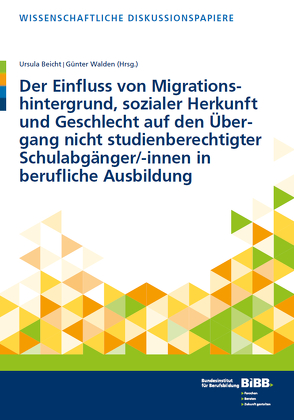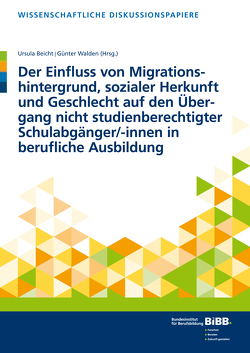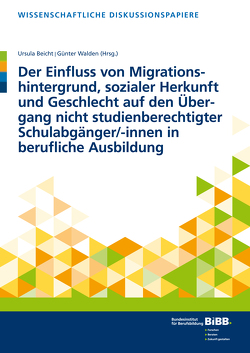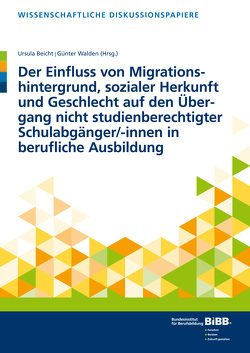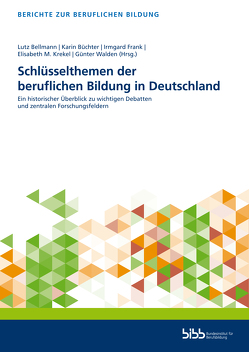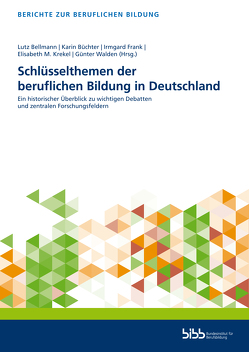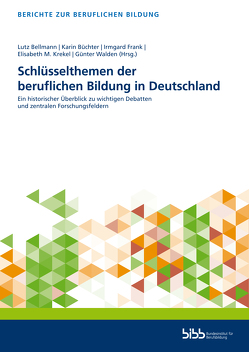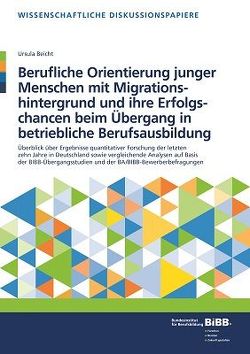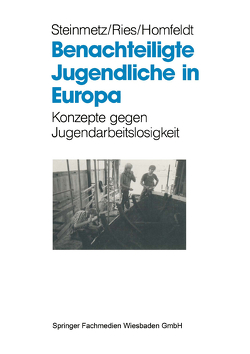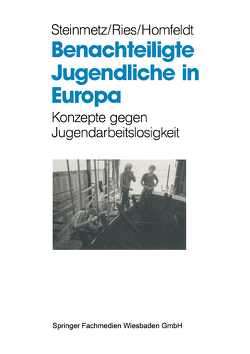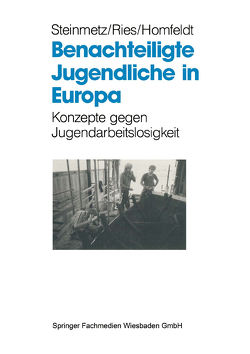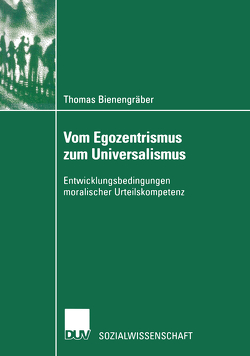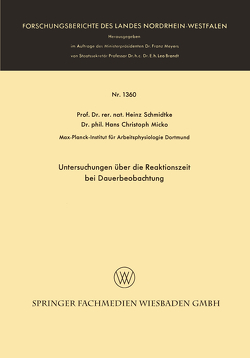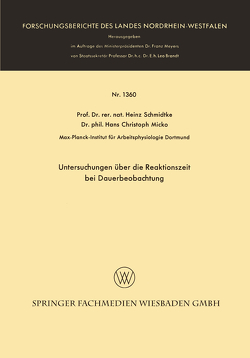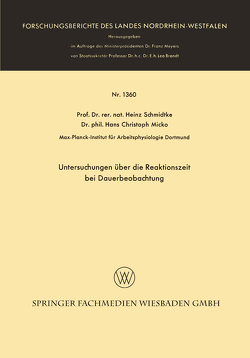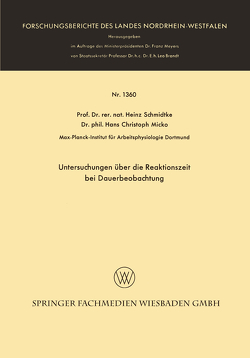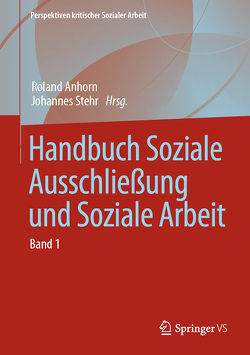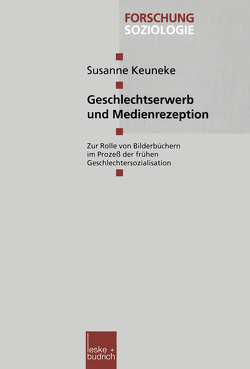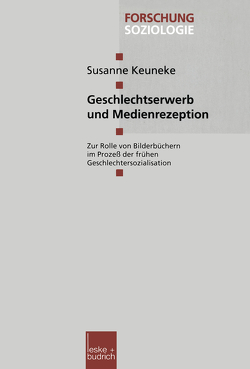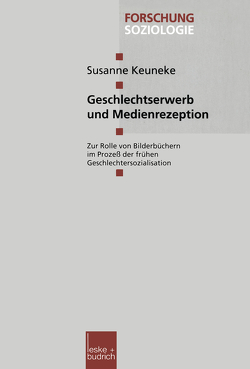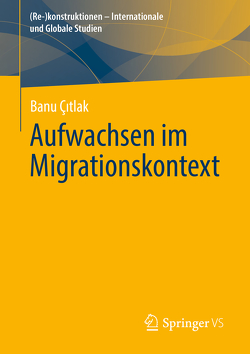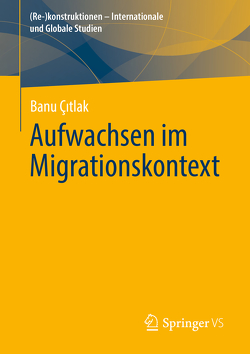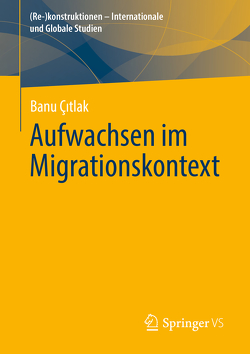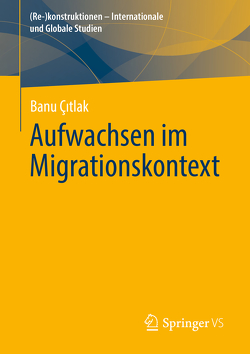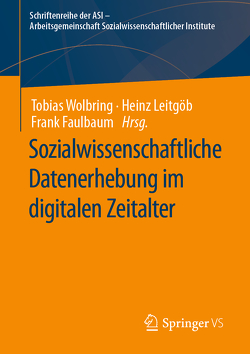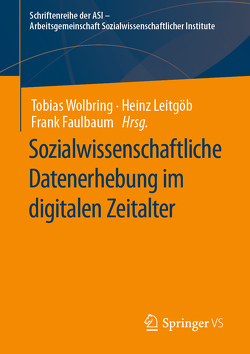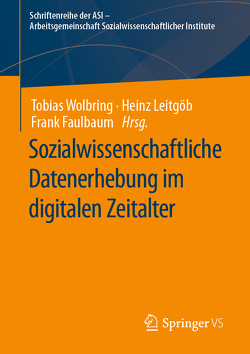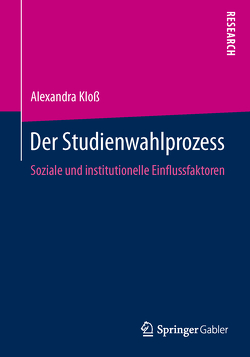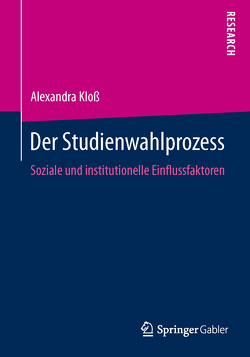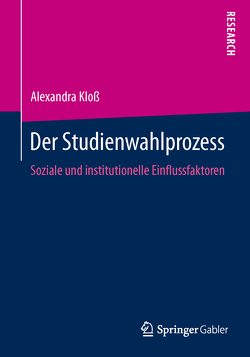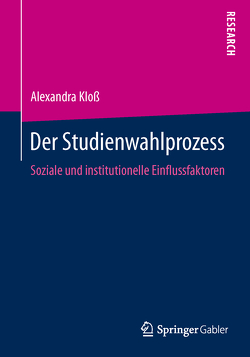Der Einfluss von Migrationshintergrund, sozialer Herkunft und Geschlecht auf den Übergang nicht studienberechtigter Schulabgänger/-innen in berufliche Ausbildung
Ursula Beicht, Günter Walden
A migration background, social origin and gender of young people are the most important characteristics that induce inequalities in vocational education and training. The effects of these characteristics are not always equal but can be stronger or weaker because of interaction. In a quantitative empirical analysis based on data of the National Education Panel Survey (NEPS) for school leavers without a higher education entrance qualification it is investigated how the relevant characteristics affect the chances of different groups for transition to company-based training and to fully qualifying training as a whole. In particular results show that a migration background only decreases the transition chances to company-based training in case of young men. By contrast young women with a migration background have no disadvantages compared to young women without a migration background. However, young men have much better chances to get a training place than young women in general. A low social origin deteriorates substantially educational success in the general school system and therefore also decreases the chances for transition to vocational education and training, especially in the case of young women.
